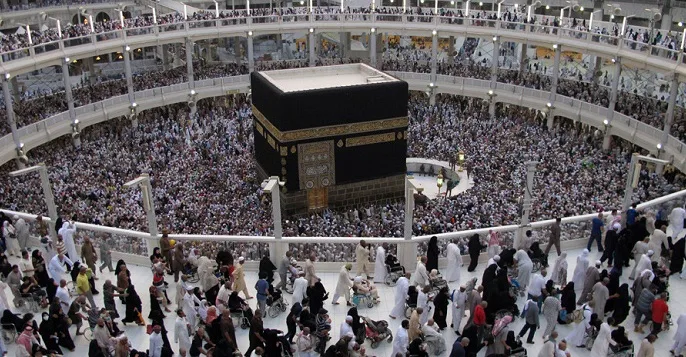
AMN / Medina (Saudi Arabia)
The Indian Haj Mission is gearing up to facilitate the first full-fledged Haj pilgrimage after the COVID-19 outbreak. With an estimated 175,000 Indian pilgrims expected to embark on this spiritual journey, the Indian Haj Committee is making extensive arrangements to ensure a seamless and comfortable experience for all participants.
Under the government quota, approximately 140,000 pilgrims will be sent by the Haj Committee of India, marking one of the highest numbers in recent times. Recognizing the unique circumstances, this year’s Hajj pilgrimage embraces a notable specialty – female Hajis without Mehram. Around 4,000 female pilgrims are taking advantage of this opportunity, and the Indian Haj Mission has made dedicated provisions to accommodate their needs, including separate buildings, distinct branches, and designated bus points for transportation.

The welfare of the pilgrims, particularly the elderly, is of paramount importance. More than 47,000 pilgrims aged 60 and above will be participating in this year’s Hajj. To cater to their requirements, the Haj Mission has implemented special arrangements, including enhanced medical care, wheelchair facilities, and the invaluable assistance of volunteers.
Ensuring the success of the Hajj pilgrimage is the Indian Haj Mission’s top priority, as evident in the recent visit of the Ambassador of India to Saudi Arabia, Dr. Suhel Ajaz Khan. Ambassador Khan visited Madina and Makkah on June 5-6, where he reviewed the arrangements made by the Indian Mission for the pilgrims. This comprehensive assessment covered accommodation, medical facilities, transportation, and interactions with volunteers, medical personnel, and officials.
During the visit, Ambassador Dr. Khan extended his gratitude to the Saudi authorities for their cooperation in making the Hajj pilgrimage a success. He also took the opportunity to address the pilgrims, appealing to them not to be swayed by baseless rumors and reinforcing the Mission’s unwavering commitment to ensuring a comfortable stay for all. With regard to healthcare, the Indian Haj Mission has set up three hospitals in Makkah with capacities of 40 beds, 30 beds, and 20 beds. Additionally, 17 dispensaries, along with branch offices, have been established to cater to the medical needs of the pilgrims.
Transportation arrangements have been meticulously planned to facilitate easy access to the Holy Mosque. Pilgrims in Makkah are provided with 24-hour transportation services, and special additional service agreements have been signed with various companies to ensure high-quality transportation to Mina, Arafat, and the airport. The Indian Haj Mission’s relentless efforts and preparations reflect the dedication of the Indian government to provide comprehensive services and ensure the welfare of its pilgrims during the Hajj pilgrimage. As the pilgrimage commences, it is expected that the Indian Haj Mission will continue to address any grievances promptly, maintaining the comfort and satisfaction of all participants.
